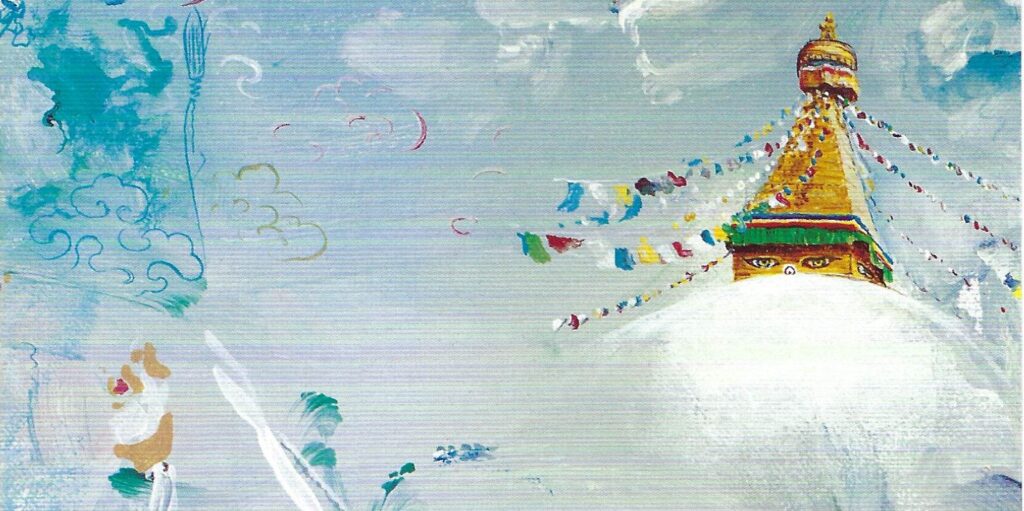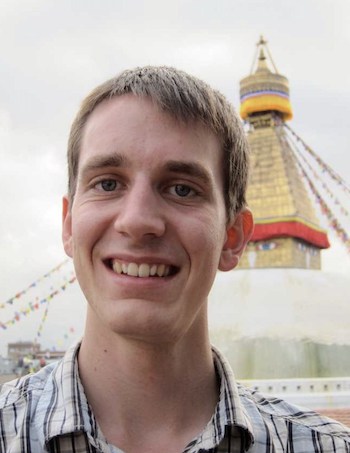
As the year draws to a close, Samye would like to take this opportunity to applaud and acknowledge the hard work of the translation and interpretation teams at Samye and Lhasey Lotsawa Translation. Thanks to the Lhasey Lotsawa team’s joyful diligence and long hours of study and reflection, we can access our practice texts, life stories, and advice manuals.
In addition, the Samye interpretation and translation team has produced translations of a number of the Samye courses and core materials. And our oral interpreters have allowed people across the globe to access both live and prerecorded teachings from Phakchok Rinpoche and his monastic instructor team.

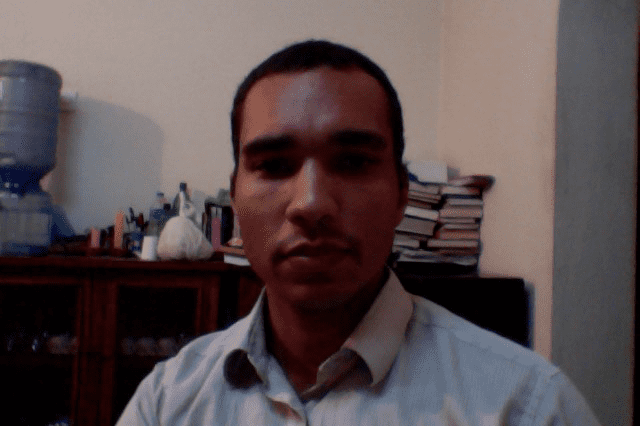
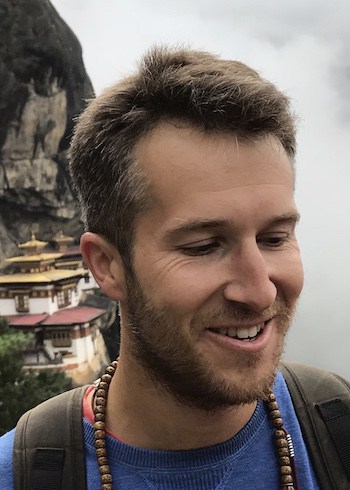

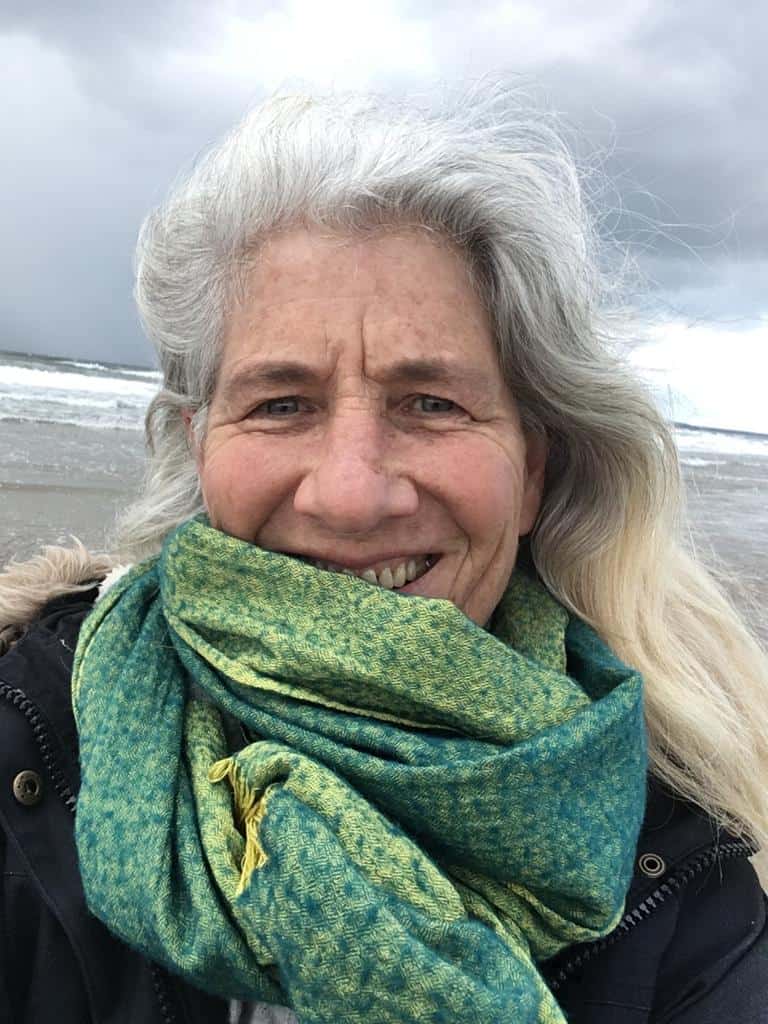
Rejoicing in the Kindness of Previous Translators
As we rejoice in the kindness of our translators, we can also call to mind the tremendous efforts of all the translators of the past. Our team continues in the footsteps of a long lineage of linguists and translators. The history of the Buddhdharma’s expansion is in many ways also a history of language and translation.
The treacherous voyages of translators traveling overland or by sea to hear the teachings and later to acquire written texts often read like fantastical adventure stories. When we read the pilgrimage accounts of the famed Chinese travelers Faxian, Xuanzang, and Yijing, we can recall that the purpose of their journey was to study with great masters and to return with texts that they went on to translate into Chinese.
Similarly, Tibet’s emperor Songsten Gampo sent Thonmi Sambhota and a team of translators to India. There they undertook years of Dharma study with authentic panditas and devised both a new script and proper vocabulary. And Vairotsana, one of the 25 main disciples of Guru Rinpoche, was sent by king Trison Detsen to India, Nepal, Khotan, and China to study and translate the Dharma. We owe a huge debt to the monks, nuns, and laypeople who risked their lives to receive and transmit the Dharma throughout history. And we also rejoice in the generosity of their sponsors: kings, rulers, nobility, and wealthy and ordinary householders.
Translation Through the Ages
According to traditional accounts, during his lifetime the Buddha urged his followers to go forth and teach the Dharma in the language of the local people rather than imposing a sacred language. A famous quote has the Buddha advising his monks that the imposition of Vedic language verses “will not lead to conversion of the unconverted.” Instead, he counseled them to learn and to repeat the words of the Buddha “each in his own dialect”. Scholars still have no certainty regarding the Buddha’s own mother tongue. However, it seems that during the early centuries the teachings were orally transmitted in many related middle-Indic vernacular languages known as Prakrits.
For at least 400 years after the parinirvana of the Buddha, the Dharma spread orally in languages as diverse as Sogdian and Tocharian. A shift toward the Sanskrit classical language seems to have emerged around the 2nd century CE.
Unfortunately, the identity of those who diligently memorized, practiced, and preserved the teachings and taught them in various languages is unknown to us.
But we do know from monastic records that highly trained monks and nuns were awarded the title bhanaka and were entrusted with the continuity of the oral tradition. Receiving the oral transmission of the teaching involved years of study and memorization, with different groups specializing in certain types of texts. Eventually, this oral tradition also began to record teachings in writing and new translators emerged who specialized in the written texts.
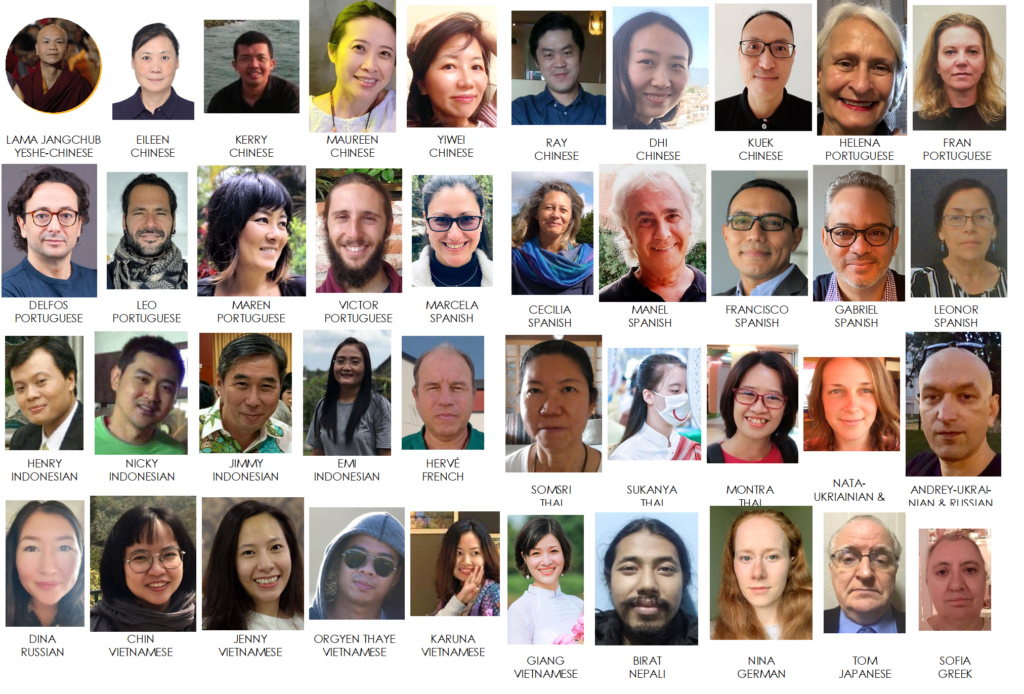
Help us to Continue the Legacy
We at Samye celebrate this history and have as part of our mission the aspiration to provide financial support for our translation teams. That is why, as part of our fundraising efforts, we have a strong focus on developing and sustaining our translators. We aspire to add a full-time paid translation manager to organize our workflow and to provide training and support for our interpreters and translators.
In addition, we will continue to offer financial support for our interpreters and translators so that they can continue to study and practice and bring the teachings to their own communities.
We hope that you will join us in this support by becoming a monthly member of Samye Institute. We also invite one-time donations for our translation projects.
Translations
简体中文
繁體中文
Français
Bahasa Indonesia
Português
Español
ภาษาไทย
Українська
Việt Ngữ


